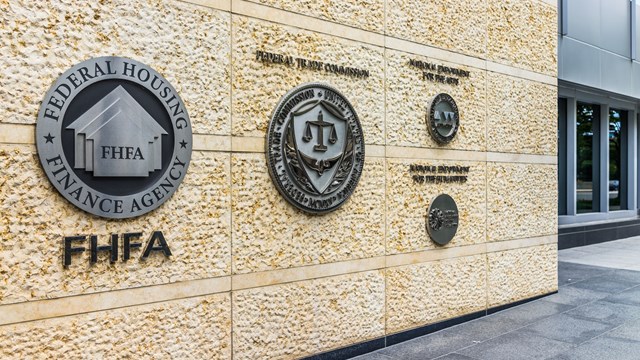In most cases, New Jersey's community and homeowner associations largely govern themselves, with little oversight from the state and no standardized procedures or best practices. But recently there has been some movement from the powers that be in Trenton to regulate community associations and provide some protection to homeowners that live in them.
The major reform legislation that has been debated for years and wending its way through the legislative process is the New Jersey Uniform Common Interest Ownership Act, more commonly referred to as UCIOA. UCIOA bill A798, sponsored by Assemblymen Wilfredo Caraballo, D-29, Peter J. Biondi, R-16 and Robert M. Gordon, D-38, passed the Assembly on March 2, 2006 by a wide margin of 55-14-6. The bill was reported out and referred to the Senate's Community and Urban Affairs Committee, where it is awaiting action.
The purpose of the bill is to create one law that is uniformly applicable to all forms of community associations, lake association, timeshares, leasehold associations, etc.; to define a standard set of approaches to alternative dispute resolution; to establish board and owner rights in areas such as fair elections, access to records, conflicts of interest, publication of board meeting minutes, gaining access to individual units; and, lastly to impose fines when necessary.
The bill also provides governmental oversight of common interest community associations in several areas, and requires associations to register with the commissioner of the Department of Community Affairs (DCA).
Jack McGrath, the new president of the New Jersey chapter of the Community Associations Institute (CAI-NJ), says the recent UCIOA bill is a logical approach to governance of HOAs and at the same time offers a number of protections to individual homeowners. At least 16 states have adopted some form of UCIOA legislation.
McGrath, a board member of The Grande at Colts Neck Homeowners Association for the past six years, says that "UCIOA creates a balance between individual homeowner's rights and the rights of the majority as expressed through each board's elected representatives. This reasonable and logical approach is unbiased and avoids fanaticism in order to serve the community's best interests."
The bill, concludes McGrath, establishes consistent limits and board controls; provides for alternative dispute resolution (ADR) relief; provides for open meetings and workshop sessions, ensuring that board meetings are held at least quarterly and open to all homeowners; provides for availability of all meeting minutes and mandates that they are accessible to all homeowners; provides that regular elections are held; and that all bidders of contracts have equal footing in the process.
On the Legal Front
A group of legal decisions are also impacting the way HOAs and community associations operate. The first precedent-setting case stemmed from a ruling handed down in February by the Appellate Division of New Jersey's Superior Court in the long-standing legal battle over the rights of a group of homeowners at the 10,000-resident community of Twin Rivers in East Windsor. The disaffected homeowners sued the association over the right to post political signs on members' lawns, to equal access to the community newspaper run by the Board of Trustees, and access to the community room for meetings of the dissidents.
In Committee for a Better Twin Rivers, et al. v. Twin Rivers Homeowners' Association, et al,the Appellate Court (reversing a previous trial court decision) ruled that a community association is indeed subject to constitutional norms when the actions of the association are found to infringe upon the homeowner's fundamental right to freedom of speech and expression.
In the Twin Rivers case, explains Attorney David Byrne of the Lawrenceville-based office of Stark & Stark, the Appellate Court felt that an association's suppression or control of certain "expressive" exercises "relating to life in the community or elsewhere" should not be considered as a contract dispute or matter of business judgment.
The case is on appeal with the New Jersey Supreme Court and until altered, says Byrne, associations should take care not to unreasonably limit homeowner's rights as guaranteed by the U.S. and New Jersey Constitutions.
"Associations must tread carefully when considering rules and/or regulatory schemes connected to members' expressive exercises (i.e., flyers related to board elections, hanging flags outside of a home, petitions to remove trustees, limit or expand board or member powers)," notes Byrne.
"Associations should undertake a review of all existing rules utilized to regulate and/or control the expression of its members and consider their enforceability under stricter constitutional limitations and not under the more lenient business judgment rule," he adds.
Michael S. Karpoff, a partner in the Community Associations Practice Group of Hill Wallack Attorneys at Law in Princeton, and the lead attorney for the Twin Rivers HOA, asserts that the court's ruling is not, however, the deathknell of community association governance.
"There is no need for governing boards to panic over the decision by the Appellate Division of the New Jersey Superior Court in Committee for a Better Twin Rivers, et al v. Twin Rivers Homeowners' Association, et al," says Karpoff. "Notwithstanding, the sensationalist newspaper headlines and the public claims of the plaintiffs, the Appellate Division did not invalidate any community association regulations or provide an unfettered right to free speech for members of common interest communities."
It's important to remember, Karpoff continues, that the court affirmed use of both the business judgment rule and the contractural principles that boards live by in promulgating association regulations and policies for their members.
In addressing the court's decision, McGrath said the long-term conflict in the Twin Rivers' community has been "disheartening" for him to watch. "Unfortunately, a mere handful of Twin Rivers residents challenged the association's right to enact reasonable restrictions over the placement of lawn signs on association common areas. The efforts of a small faction of people would be better spent supporting a positive and proactive effort, which culminated in the introduction of a comprehensive proposal that modernizes community association governance."
Another case that has spurred legislative activity in Trenton is Micheve v. Wyndham Place at Freehold Condominium Association.This case involves whether a condominium association has the right to impose a non-refundable capital contribution fee whenever a condo unit is transferred to a new owner. In this instance, the owner sued the association board seeking recovery of the $750 fee, which was only assessed on new purchasers of condominium units.
The court, according to Attorney Christopher Florio, also with Stark & Stark, ended up ruling that the capital contribution was discriminatory because it only applied to new owners, and also that the resolution violated New Jersey Condominium Statute, the association's own master deed and bylaws.
"Associations are urged to discuss this issue with counsel, particularly if the association charges a capital contribution by an adopted resolution," Florio says.
According to Kenneth R. Sauter, an attorney in the condominium association, real estate, zoning and planning, and banking practice areas with Morristown-based Ramsey Berman, PC, and the chairman of CAI-NJ's Legislative Action Committee (LAC), Assembly bill A2822 was introduced March 9, 2006 in the wake of the Micheve decision. The bill, sponsored by Assemblyman Frederick Scalera, D-36, permits the charging of a fee for capital contributions for the purpose of defraying common expenses. This would allow condominium and community associations the latitude in its master deed or bylaws to levy and collect a capital contribution, membership fee or some other charge upon resale or transfer of units. The bill was referred to the Assembly's Housing and Local Government Committee and reported out of committee on May 18, 2006 with amendments.
A third case, Siddons v. Cook and Country Place Condominium Association, concerned a condominium board's duty to warn owners of a potentially dangerous condition. The case centered around Sandra Siddons, a condominium association member whose unit was flooded when a faulty dishwasher hose in the unit directly above hers burst. She sued the upstairs unit owners as well as her condominium association for substantial damage caused to her unit. Although there were no problems with the upstairs owners' dishwasher, it was revealed that the condominium had known of at least three other units that experienced similar problems with faulty hoses. Siddons claimed that the condominium had a duty to warn all owners of this problem.
The court, reversing an earlier trial court ruling, found that while the condominium had no duty to inspect or maintain personal property—such as a dishwasher or washing machine—located in an individual unit, the condominium was negligent for failing to act reasonably and warn the unit owners of potential dangers of which that condominium had prior notice. Because the risk posed by the faulty hoses was not known to the majority of unit owners and only to the condominium, the court found the condominium at fault.
"The lesson here," says Byrne, is that "condominiums and their managing agents or boards have heightened duties to notify owners of some recurring problems—even as small as a faulty dishwasher hose—that may potentially cause damage to the units or common areas."
Other Matters of Interest to HOAs
Other bills which the LAC are monitoring, according to Sauter, include A2966, a bill sponsored by Assemblymen Upendra Chivukula, D-17, Joseph V. Egan, D-17, and Peter J. Barnes, D-18, in the Assembly and S1797, sponsored by Senator Bob Smith, D-17, concerning the issuance of interest-free loans from the Home Warranty Security Fund for homeowners to replace polybutylene water piping. PB piping, a form of plastic resin, was commonly installed by new homebuilders from 1978-95. However, the material has been found to prematurely corrode, disintegrate and burst. The bill was introduced May 8th in the Senate and referred to the Community and Urban Affairs Committee, and on May 11th in the junior chamber, where the Assembly's Housing and Local Government Committee is reviewing it.
Among other items on the legislature's calendar, are bills relating to alternative dispute resolution; certifying managers of common interest communities; giving certain enforcement powers to DCA concerning homeowner associations and registration; authorizing DCA to establish bidding and conflict of interest guidelines for homeowners associations; establishing standards of fairness, due process, and accountability for homeowners associations regarding meetings, access to records and audits; altering transition period and clarifying developer rights; requiring radon testing upon sale or lease of residential properties; establishing a Naturally Occurring Retirement Community (NORC) pilot program; requiring certain safety measures at community pools; addressing mold hazards in indoor environments; requiring a percentage of affordable housing be reserved for low income households; requiring sellers of residential property to disclose knowledge of termite damage to property; requiring use of luminescent materials in exit pathways of high-rise structures; and establishing a building inspection program for state of emergency.
Debra A. Estock is the managing editor of The New Jersey Cooperator.







Comments
Leave a Comment